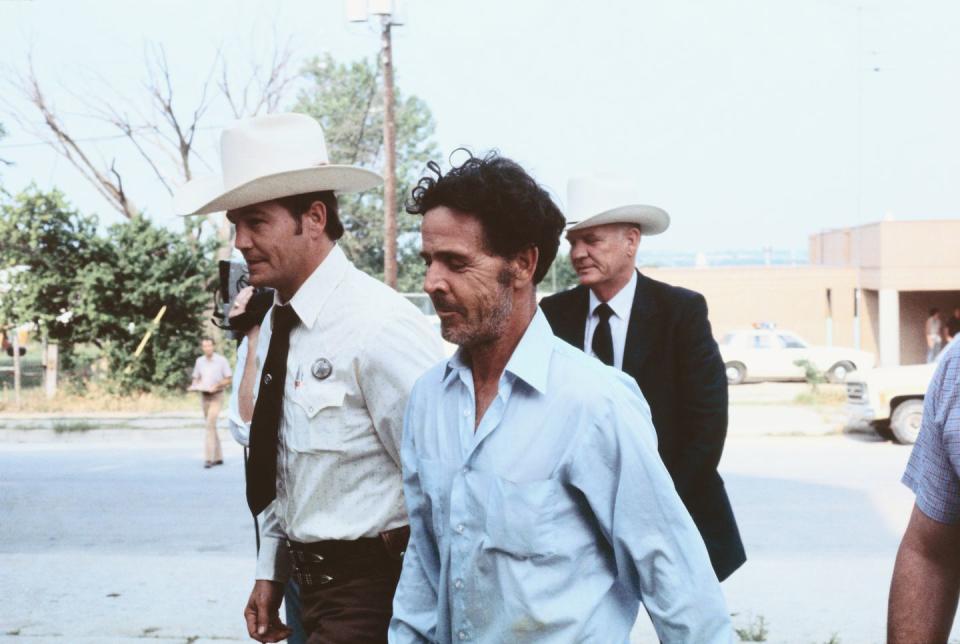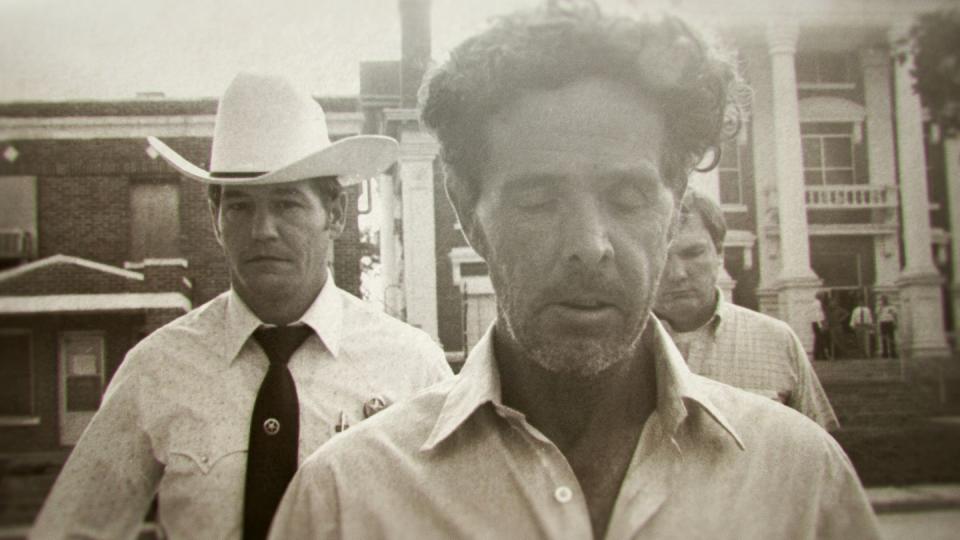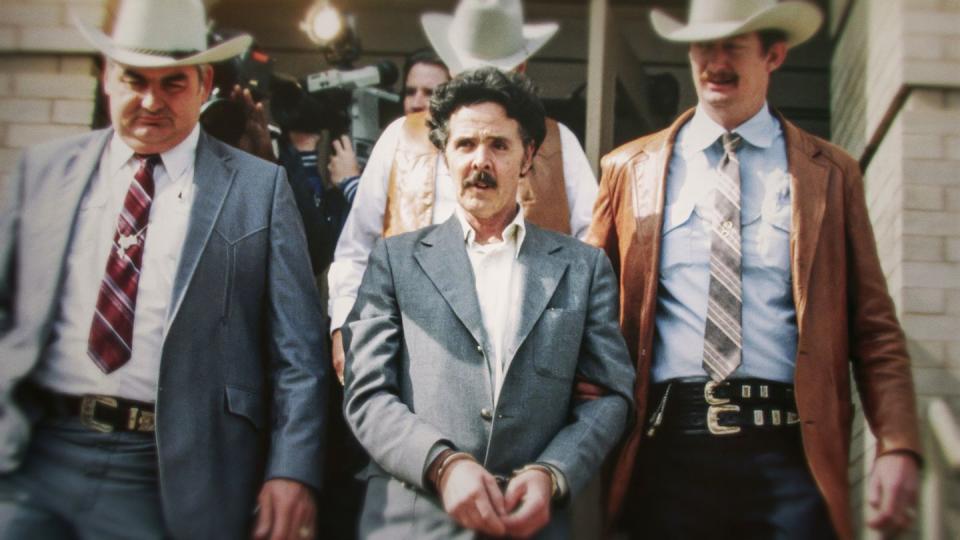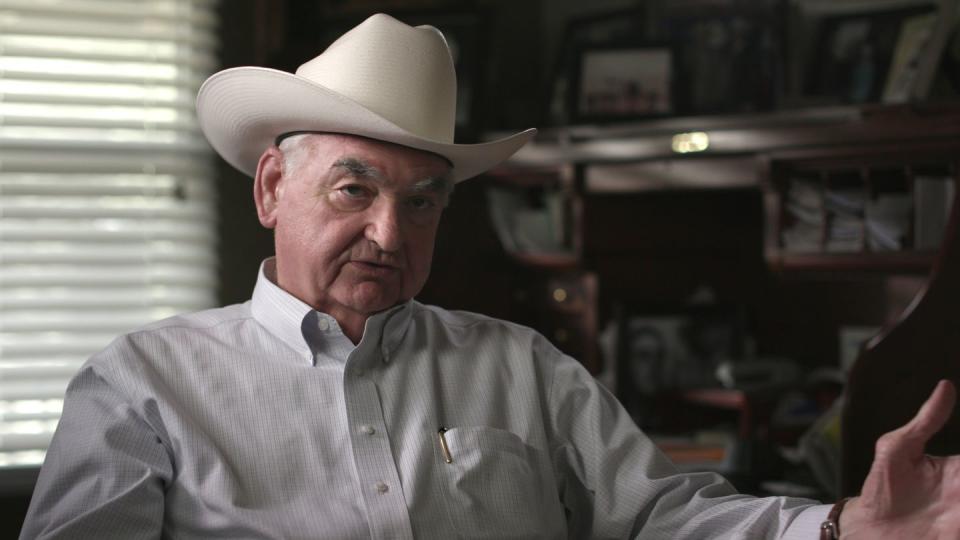The Confession Killer on Netflix tells the murky story of Henry Lee Lucas
Henry Lee Lucas is the subject of Netflix's brilliant new original documentary The Confession Killer, a series that questions whether one of America's most notorious serial killers was, in fact, even a serial killer at all.
The five-parter covers a lot of themes across true crime, diving into the mechanics of a sometimes flawed justice system, the psychology of false confessions and the ethics surrounding true crime's very existence as a pop-culture genre.
Lucas confessed to some 600 unsolved murderers across the United States, but by the end of The Confession Killer's run you'll be left wondering whether he had anything to do with them at all.
For one single mind-blowing moment, it even looks as though Becky Powell – a 15-year-old he was known to have spent time with and admitted to murdering – might even have been alive after all.
While Lucas was on Death Row awaiting his sentence in the famous 'Orange Socks' case (the unknown victim was only identified this year as Debra Jackson), a woman came forward claiming to be Becky.
This was eventually discovered to be part of an elaborate hoax. A woman named Phyllis Wilcox had contacted Lucas while he was in prison and decided to pretend to be Becky to help his case.
At a time when public fascination with serial killers was a relatively new phenomenon, Henry Lee Lucas's notoriety – rightly or wrongly – thrust him into the spotlight. It seems that Phyllis's fascination with convicted killers extended further than Lucas, as she was also said to have been in contact with Charles Manson, John Wayne Gacy and Ted Bundy.

Among the many question marks thrown up by the documentary, it is consistently asserted throughout that Lucas killed his mother – but that particular story is never told in any real detail.
Henry Lee Lucas was born in Blacksburg, Virginia, in 1936 and apparently had a disturbing and troubled childhood. His mother, Viola Lucas, and father were both alcoholics, and some reports even suggest that a young Henry may have also been abusing alcohol.
Viola was believed to be a sex worker, and it has been claimed that she forced her young son to watch her with her clients. At age 10, Henry injured his eye and his mother is said to have ignored it for days, resulting in the infection which lead to its removal. Henry was also subjected to both verbal and physical abuse as a child.
As a teenager, it's believed that Lucas had started harming animals. He ran away from home at age 14, following the death of his father.

At the age of around 17 or 18, according to the June 28, 1954 State Penitentiary admittance ledger (via News Leader), Lucas was found guilty of statutory burglary and sentenced to two years. His time was extended after two failed escape attempts, and he was released in September of 1959.
From here he went to live with his step-sister in Michigan. When his mother visited for Christmas, an argument is said to have taken place. This fight resulted in his mother's death, and he was subsequently charged and convicted of her murder.
According to the book Mapping the Trail of a Serial Killer (by Brenda Ralph Lewis), Lucas said: "All I remember was slapping her alongside the neck, but after I did that I saw her fall and decided to grab her. But she fell to the floor and when I went back to pick her up, I realised she was dead. Then I noticed that I had my knife in my hand and she had been cut."
Lucas claimed to have killed his mother in self defence. In 1960 he was sentenced to between 20 and 40 years' incarceration, and it has been reported that he was admitted to Ionia State Mental Hospital. Some published works say that he was paroled in 1970 after serving 10 years, while others state that he was released in 1971 due to overcrowding.
He was soon imprisoned again, this time for attempting to kidnap a 15-year-old girl at gunpoint; he was sentenced to five years and released in 1975 (via Biography).

He then met Ottis Toole in Florida. Their bond was clearly highlighted in Netflix's The Confession Killer, and they claimed to have gone on a killing spree together.
Freida "Becky" Powell was Toole's teenage niece. Lucas had described her as the only girl he ever loved, and he was ultimately linked to her murder. It's important to note that she was aged just 15 at the time of her death, making their possible involvement all the more disturbing. Henry Lee Lucas is also thought to have killed an elderly woman, 82-year-old Kate Rich.
It was not until 1983 that he was arrested for unlawfully carrying a firearm. Having been picked up by a Texas Ranger, Lucas admitted to killing Powell and Rich. After he started talking, it was believed that he might be responsible for many more killings and the Lucas Task Force was established.

As shown in The Confession Killer, Lucas went on to confess to hundreds of other unsolved murders across the country – many of which have since been dismissed as lies.
Lucas's treatment in jail was not what you'd expect for someone accused of such atrocities. He was rarely handcuffed, was rewarded with milkshakes and other privileges, and would meet with reports and television crews that ultimately made him a household name.
Whether following a compulsive need to people-please or simply trying desperately to avoid his death sentence, there were many factors – particularly when acknowledging his mental capacity – that could have had a bearing on Lucas's readiness to confess to crimes that he didn't commit.
One homicide investigator even tested Lucas with a fabricated crime, to which he also confessed.

The Texas Rangers seemed to firmly believe in Lucas's widespread guilt, and helped facilitate interviews between Lucas and other law enforcement officials. Of the approximate 200 murders that the Texas Rangers helped credit to Lucas, no DNA has been found to link him to the crimes. In 20 of the cases, other culprits have now been positively identified.
Lucas later recanted his admissions and in 1998, his death sentence (in the 'Orange Socks' case) was commuted to life imprisonment by then-Governor George W Bush.
Lucas died of natural causes while behind bars. According to a 2001 report in the Dallas Observer, by the time of his death Lucas was insisting that he had only ever killed one person – his mother. He claimed to have no idea who had murdered Rich, and said that he thought Becky was still alive after ditching him for a truck driver.

What The Confession Killer does particularly well is amplify the voices of the victim's families. With a question mark over whether or not Henry Lee Lucas was responsible for many of these murders, there remains an absence of closure for those whose lives were so gravely affected.
Even more so because, in so many of the cases, authorities are refusing to reopen or further investigate the murders.
The Netflix documentary has been dedicated to the victims and their families, who are still seeking justice.
The Confession Killer is available now on Netflix.
Digital Spy now has a newsletter – sign up to get it sent straight to your inbox.
Want up-to-the-minute entertainment news and features? Just hit 'Like' on our Digital Spy Facebook page and 'Follow' on our @digitalspy Instagram and Twitter accounts.
You Might Also Like

 Yahoo News
Yahoo News 